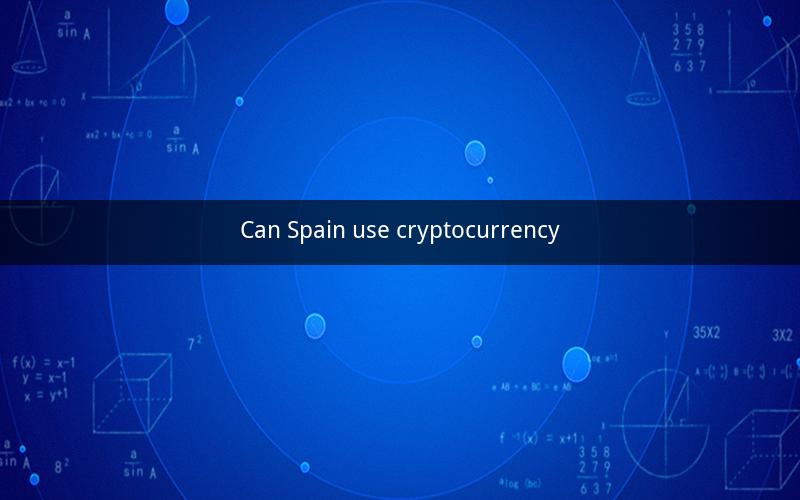
Can Spain Use Cryptocurrency?
Table of Contents
1. Introduction to Cryptocurrency in Spain
2. The Legal Framework for Cryptocurrency in Spain
3. The Role of Cryptocurrency in the Spanish Economy
4. The Advantages of Using Cryptocurrency in Spain
5. The Challenges of Adopting Cryptocurrency in Spain
6. The Future of Cryptocurrency in Spain
7. Conclusion
1. Introduction to Cryptocurrency in Spain
Spain has been gradually embracing cryptocurrency, which has become an increasingly popular financial asset in the country. Cryptocurrency refers to digital or virtual currencies that use cryptography for security. The most well-known cryptocurrency is Bitcoin, but there are thousands of other cryptocurrencies, each with its unique features and purposes.
2. The Legal Framework for Cryptocurrency in Spain
The Spanish government has been working to establish a legal framework for cryptocurrency. In 2021, the Spanish government passed a law that recognizes cryptocurrency as a financial asset. However, the law also imposes certain regulations on the use of cryptocurrency, such as requiring exchanges to register with the Bank of Spain and implementing anti-money laundering measures.
3. The Role of Cryptocurrency in the Spanish Economy
Cryptocurrency has the potential to play a significant role in the Spanish economy. It can provide a more efficient and transparent way of conducting transactions, reduce the cost of remittances, and promote financial inclusion. Additionally, cryptocurrency can attract foreign investment and foster innovation in the financial sector.
4. The Advantages of Using Cryptocurrency in Spain
There are several advantages to using cryptocurrency in Spain:
- Lower Transaction Costs: Cryptocurrency transactions can be cheaper than traditional banking transactions, especially for international transfers.
- Security: Cryptocurrency transactions are secure and decentralized, reducing the risk of fraud and theft.
- Accessibility: Cryptocurrency can provide access to financial services for people who do not have access to traditional banking systems.
- Transparency: Cryptocurrency transactions are transparent, making it easier to track and audit financial activities.
5. The Challenges of Adopting Cryptocurrency in Spain
Despite the advantages, there are challenges associated with adopting cryptocurrency in Spain:
- Regulatory Uncertainty: The legal framework for cryptocurrency is still evolving, which can create uncertainty for businesses and individuals.
- Public Perception: Some people may be skeptical of cryptocurrency, viewing it as a risky investment.
- Technical Barriers: Not everyone has the technical knowledge or resources to use cryptocurrency.
- Market Volatility: Cryptocurrency prices can be highly volatile, which can be a concern for investors.
6. The Future of Cryptocurrency in Spain
The future of cryptocurrency in Spain appears to be promising. The government's recognition of cryptocurrency as a financial asset is a positive step towards its adoption. Additionally, the growing number of businesses and individuals using cryptocurrency suggests that it will continue to gain traction in Spain.
7. Conclusion
In conclusion, cryptocurrency has the potential to play a significant role in the Spanish economy. While there are challenges associated with its adoption, the advantages of using cryptocurrency, such as lower transaction costs and increased security, make it an attractive option for businesses and individuals. As the legal framework continues to evolve, it is likely that cryptocurrency will become an increasingly important part of the Spanish financial system.
Related Questions and Answers
1. Question: How does the legal framework for cryptocurrency in Spain compare to other countries?
Answer: The Spanish legal framework for cryptocurrency is relatively progressive, but it still lags behind some other countries, such as Switzerland and Japan, which have more established regulations.
2. Question: What is the most popular cryptocurrency in Spain?
Answer: Bitcoin is the most popular cryptocurrency in Spain, followed by Ethereum and other altcoins.
3. Question: How does cryptocurrency affect the traditional banking system in Spain?
Answer: Cryptocurrency can disrupt the traditional banking system by providing alternative financial services and reducing the need for intermediaries.
4. Question: What are the tax implications of using cryptocurrency in Spain?
Answer: Cryptocurrency transactions are subject to taxation in Spain, including capital gains tax and value-added tax (VAT).
5. Question: Can businesses in Spain accept cryptocurrency as payment?
Answer: Yes, businesses in Spain can accept cryptocurrency as payment, but they must comply with the relevant regulations.
6. Question: How can individuals in Spain get started with cryptocurrency?
Answer: Individuals can get started with cryptocurrency by purchasing it on a cryptocurrency exchange or through a digital wallet.
7. Question: What are the risks of investing in cryptocurrency?
Answer: The risks of investing in cryptocurrency include market volatility, regulatory uncertainty, and the potential for fraud.
8. Question: How does cryptocurrency impact the Spanish economy?
Answer: Cryptocurrency can have a positive impact on the Spanish economy by promoting financial inclusion, reducing transaction costs, and fostering innovation.
9. Question: What role does the Bank of Spain play in regulating cryptocurrency?
Answer: The Bank of Spain is responsible for regulating cryptocurrency exchanges and ensuring compliance with anti-money laundering and other financial regulations.
10. Question: Can cryptocurrency replace traditional fiat currency in Spain?
Answer: While cryptocurrency has the potential to become a significant part of the Spanish economy, it is unlikely to replace traditional fiat currency in the near future.